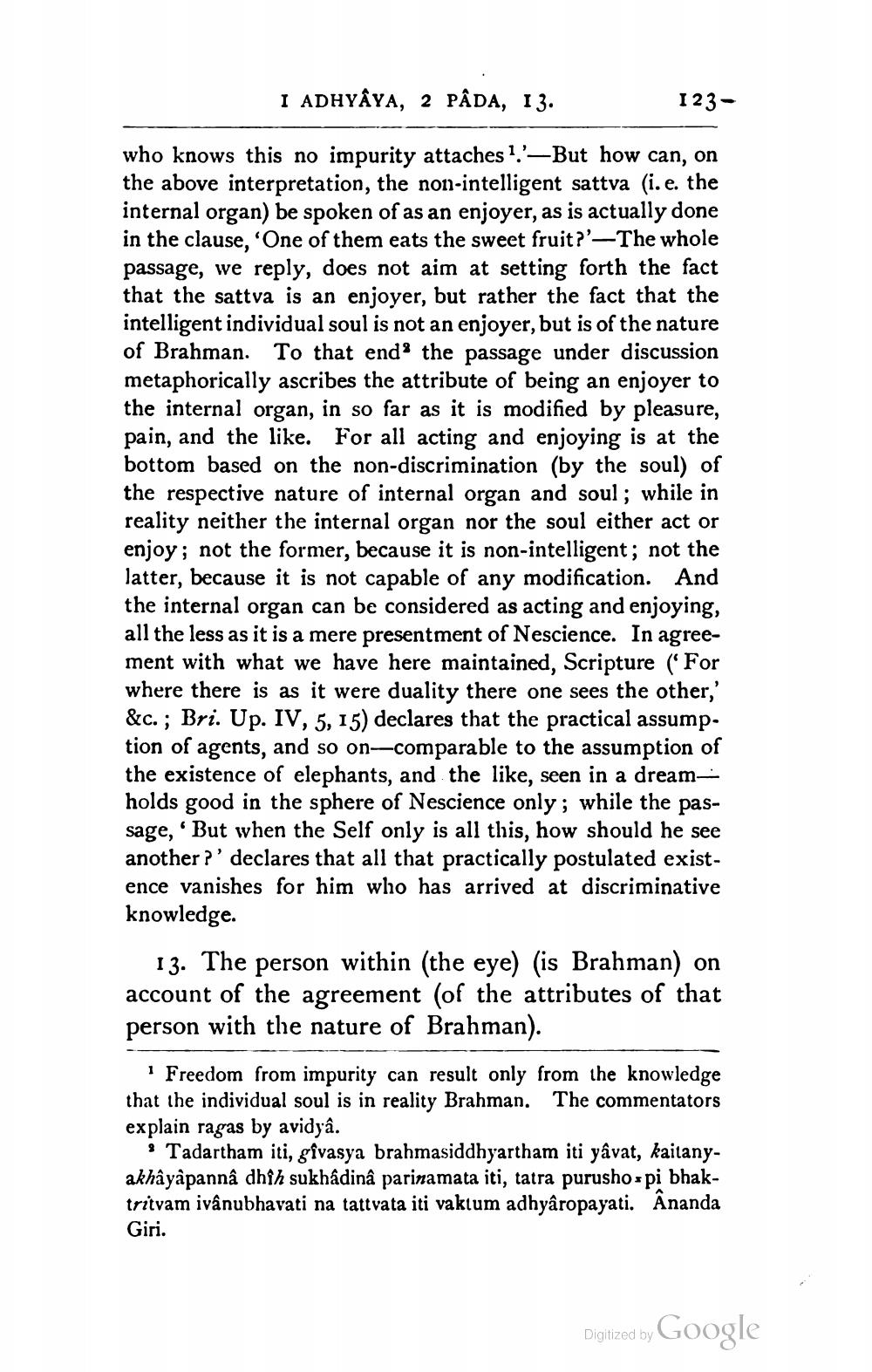________________
I ADHYÂYA, 2 PÂDA, 13.
123
who knows this no impurity attaches 1.'—But how can, on the above interpretation, the non-intelligent sattva (i.e. the internal organ) be spoken of as an enjoyer, as is actually done in the clause, 'One of them eats the sweet fruit?'—The whole passage, we reply, does not aim at setting forth the fact that the sattva is an enjoyer, but rather the fact that the intelligent individual soul is not an enjoyer, but is of the nature of Brahman. To that ends the passage under discussion metaphorically ascribes the attribute of being an enjoyer to the internal organ, in so far as it is modified by pleasure, pain, and the like. For all acting and enjoying is at the bottom based on the non-discrimination (by the soul) of the respective nature of internal organ and soul ; while in reality neither the internal organ nor the soul either act or enjoy; not the former, because it is non-intelligent; not the latter, because it is not capable of any modification. And the internal organ can be considered as acting and enjoying, all the less as it is a mere presentment of Nescience. In agreement with what we have here maintained, Scripture ('For where there is as it were duality there one sees the other, &c.; Bri. Up. IV, 5, 15) declares that the practical assumption of agents, and so on-comparable to the assumption of the existence of elephants, and the like, seen in a dreamholds good in the sphere of Nescience only; while the passage, ' But when the Self only is all this, how should he see another?' declares that all that practically postulated existence vanishes for him who has arrived at discriminative knowledge.
13. The person within (the eye) (is Brahman) on account of the agreement (of the attributes of that person with the nature of Brahman).
Freedom from impurity can result only from the knowledge that the individual soul is in reality Brahman. The commentators explain ragas by avidya.
• Tadartham iti, gîvasya brahmasiddhyartham iti yâvat, kaitanyakhâyâpanna dhih sukhâdinâ parinamata iti, tatra purushospi bhaktritvam ivânubhavati na tattvata iti vaktum adhyâropayati. Ananda Giri.
Digitized by
Digized by Google




